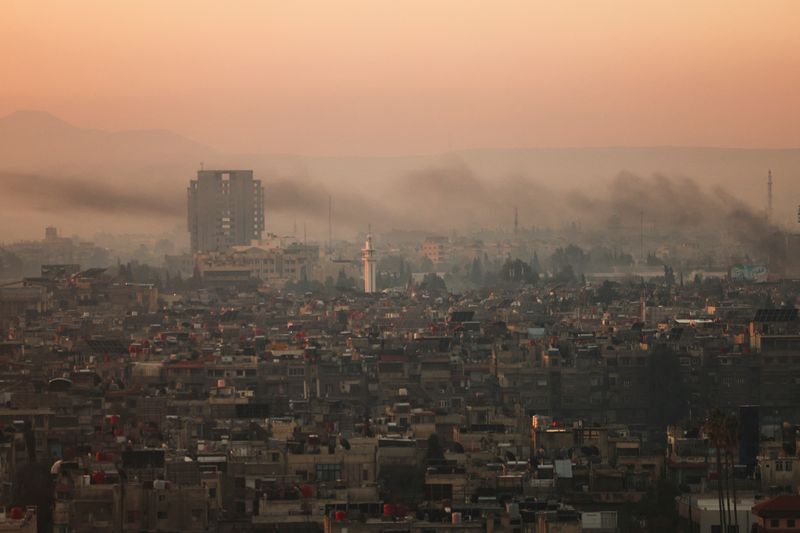By Timour Azhari and Daphne Psaledakis
DAMASCUS/WASHINGTON (Reuters) -The U.S. on Monday issued a sanctions exemption for transactions with governing institutions in Syria for six months after the end of Bashar al-Assad's rule in an effort to ease the flow of humanitarian assistance.
The exemption, known as a general license, also allows some energy transactions and personal remittances to Syria until July 7. The action did not remove any sanctions.
Syria suffers from severe power shortages, with state-supplied electricity available just two or three hours per day in most areas. The caretaker government says it aims to provide electricity up to eight hours per day within two months.
The U.S. Treasury said the move sought "to help ensure that sanctions do not impede essential services and continuity of governance functions across Syria, including the provision of electricity, energy, water, and sanitation."
A lightning rebel offensive brought a sudden end to decades of Assad family rule on Dec. 8. Islamist rebels Hayat Tahrir al-Sham (HTS), which led the advance and set up Syria's caretaker government, renounced its ties with Al Qaeda. But the U.S. continues to designate it as a terrorist entity.
The United States, Britain, the European Union and other governments imposed tough sanctions on Syria after Assad's crackdown on pro-democracy protests in 2011 spiraled into civil war.
Washington previously authorized humanitarian support to the Syrian people by aid groups, the United Nations and the U.S. government as well as some economic activity in certain areas not held by Assad's government.
While Monday's move "authorizes transactions with governing institutions in Syria ... even if a designated individual has a leadership role in that governing institution," it does not permit any transactions involving military or intelligence agencies.
The Treasury defined Syria's governing institutions as departments, agencies and government-run public service providers - including hospitals, schools and utilities - at the federal, regional or local level, and entities involved with HTS across Syria.
It also authorizes transactions in support of the sale, supply, storage or donation of energy, including petroleum and electricity, to or within Syria.
U.S. sanctions on Assad and his associates, the Syrian government, the Central Bank of Syria and HTS remain in place, said the U.S. Treasury.
'SUPPORT HUMANITARIAN ASSISTANCE'
A U.S. official, speaking on condition of anonymity, said the move showed goodwill toward the Syrian people rather than the new Islamist government.
"The end of Bashar al-Assad’s brutal and repressive rule, backed by Russia and Iran, provides a unique opportunity for Syria and its people to rebuild," said Deputy Treasury Secretary Wally Adeyemo in a statement.
"During this period of transition, Treasury will continue to support humanitarian assistance and responsible governance in Syria."
Maher Khalil al-Hasan, the trade minister in Syria's caretaker government, on Monday said the country is unable to make deals to import fuel, wheat or other key goods due to strict U.S. sanctions despite many countries, including Gulf Arab states, wanting to do so.
Syria faces a "catastrophe" if sanctions are not frozen or lifted soon, he said.
Washington wants to see HTS cooperate on priorities such as counterterrorism and forming a government inclusive of all Syrians.
Along with unilateral measures, HTS has also been on the U.N. Security Council al Qaeda and Islamic State sanctions list for more than a decade, subject to a global assets freeze and arms embargo, though there is a humanitarian exemption.
Many diplomats acknowledge that the removal of sanctions could be used as leverage to ensure Syria's new authorities fulfill their commitments.

Diplomats and U.N. officials are also keen to avoid a repeat of difficulties in Afghanistan after the hardline Islamist Taliban took over in August 2021 as U.S.-led forces withdrew after two decades of war.
Banks were wary of testing U.N. and U.S. sanctions, leaving the U.N. and aid groups struggling to deliver enough cash to run operations and forcing the U.S. to issue sanctions exemptions.